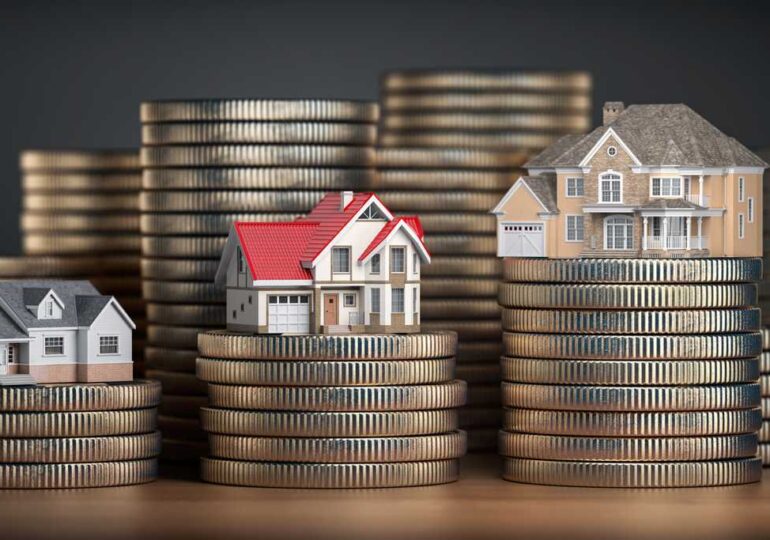House prices have increased by nearly 2% in the year to November 2024, according to the latest house price index from property market website Zoopla, as the UK property market returns to growth.
The average house price in the UK was £267,500 in November, 1.9% higher than at this time last year. This coincided with an increase in housing market activity throughout 2024, with the sales pipeline increasing by 30% year-on-year.
Zoopla expects house prices to increase 2.5% next year alongside an increase in the number of transactions, continuing the recovery from the slight dip in 2023.
“Buyers and sellers returned to the housing market in 2024 having delayed moves in the face of higher mortgage rates,” said Richard Donnell, executive director at Zoopla. “There is a sizable pipeline of sales that will complete in the first half of 2025 with many hoping to avoid higher stamp duty costs from next April.”
Conveyancing solicitors likewise expect a moderate increase in house prices next year. “Property transactions are expected to experience a resurgence in 2025,” says Daniel Chard, partner at national conveyancing solicitors Bird & Co.
This could make 2025 a relatively good time to sell a house, although it is likely to remain a buyer’s market. Zoopla’s house price index reveals that the Autumn Budget appears to have made house buyers more price sensitive. Average selling prices were 3.2% below asking price over the summer, but this figure has risen to 3.6% this month.
“Home buyers have become more price-sensitive in recent weeks as mortgage rates drift higher,” says Donnell.
UK house prices by region
According to Zoopla, house prices rose in every region in the UK this year. The most expensive house prices are in London, where the average property costs £535,000. This is an increase of 1.4% over the past year, reversing a 2.0% decline that house prices in the capital saw in the year to November 2023.
The cheapest place to buy a house in the UK is Aberdeen, where the average property costs £137,000. Having fallen 3.6% in the year to November 2023, house prices in Aberdeen are stabilising; they’ve increased 0.3% over the past year.
House prices are rising the fastest in Belfast, where the average house price increased by 6.9% over the past year to £181,200. Aberdeen is showing the slowest rate of price growth, followed by Portsmouth, where house prices increased by 0.6% to £278,600 over the past year.
The hidden costs of house buying, and how to avoid them
Buying a house is of course a major outlay in its own right – for most people, a house might be the most expensive thing they ever buy.
Despite looking closely at certain house features, many homebuyers get hit with hidden costs after they have bought a property. These can run into the tens of thousands in the form of repairs, maintenance and energy costs.
Tradesperson marketplace My Local Toolbox founder Adam Clark estimates that these costs can reach up to £37,500 – 14% of the average house price based on the Zoopla results.
Fortunately, according to Clark, asking six key questions when buying a property can put you in a position to negotiate a lower house price, saving you money or avoiding buying a home that simply carries more baggage than you are comfortable with.
1. What is the history of the property?
Potential cost savings: £4,000
A property’s history can tell you a lot about it. For example, houses that have been on the market for a long time could be overpriced, while those that have sold multiple times in quick succession could indicate problems with the local area.
It could also be worth asking about any renovations that have been made to the property, as an indication of the care that previous owners have taken over it.
2. What is the energy efficiency rating of the property, and which energy saving measures are in place?
Potential cost savings: £2,000
With the increase in energy prices that have occurred over recent years, checking a house’s energy efficiency is more important than ever.
Energy-saving features like roof insulation could have a substantial impact on the cost to heat your home, so it’s important to establish whether you will need to install these yourself when negotiating for a house.
3. What is the condition of the roof, windows and doors – do they need repairing?
Potential cost savings: £12,000
If you are hiring a professional surveyor, an assessment on the condition of roofs, windows and doors should be included, but it’s important to check and to ask the sellers yourself if not. Replacing old or damaged features like these can get expensive, particularly if a new roof is needed, so it’s important to know where you stand before agreeing a price.
4. Are there known issues such as subsidence or damp, and have they been addressed?
Potential cost savings: £4,500
Issues like subsidence or damp can be very costly to fix. If they have occurred in the past, establish what remedial work was done to address them. For example, was underpinning used to stabilise the foundations after subsidence, or were repairs made to resolve damp issues?
5. Are there any planning restrictions in the area?
Potential cost savings: £5,000
Planning restrictions could impact your ability to develop the property in the way you want to – for example, by preventing you from adding a conservatory. If this is the case, it can affect the resale value, even if you’re not planning any such work yourself, so it can be used to negotiate a lower price.
6. Are there any ongoing or upcoming infrastructure projects in the area?
Potential cost savings: £10,000
This is a key question to ask. Major developments, like road or building works, can have a negative impact on your quality of life as well as the potential resale value of your property.
Leave a comment

